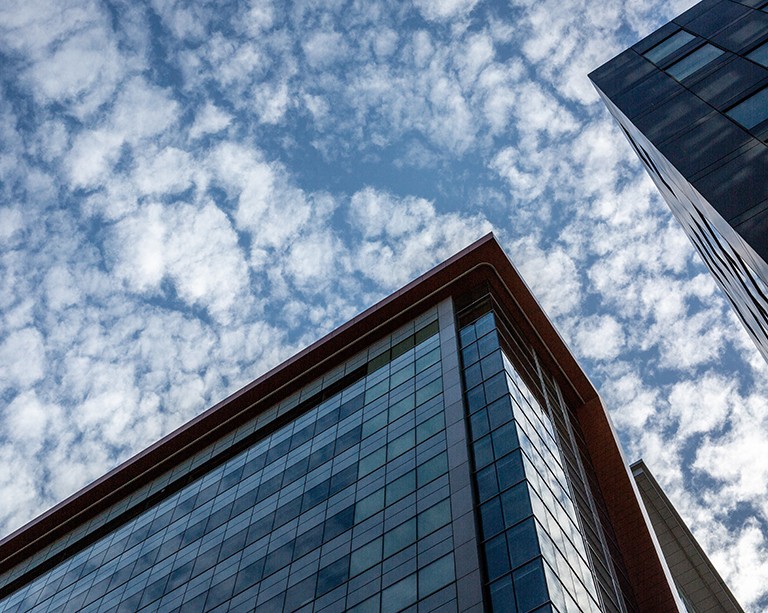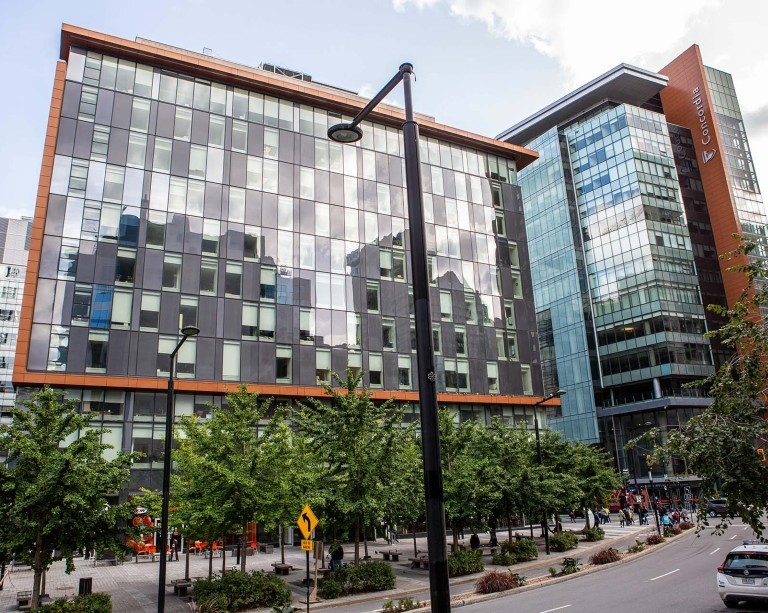PLAN/NET ZERØ
Society urgently needs to decrease greenhouse gas emissions to combat climate change. Concordia is carrying out a plan to decarbonize campuses and reduce energy consumption.
PLAN/NET ZERØ is also about creating knowledge through a living lab process that empowers students, researchers and industry leaders in their net-zero carbon projects.
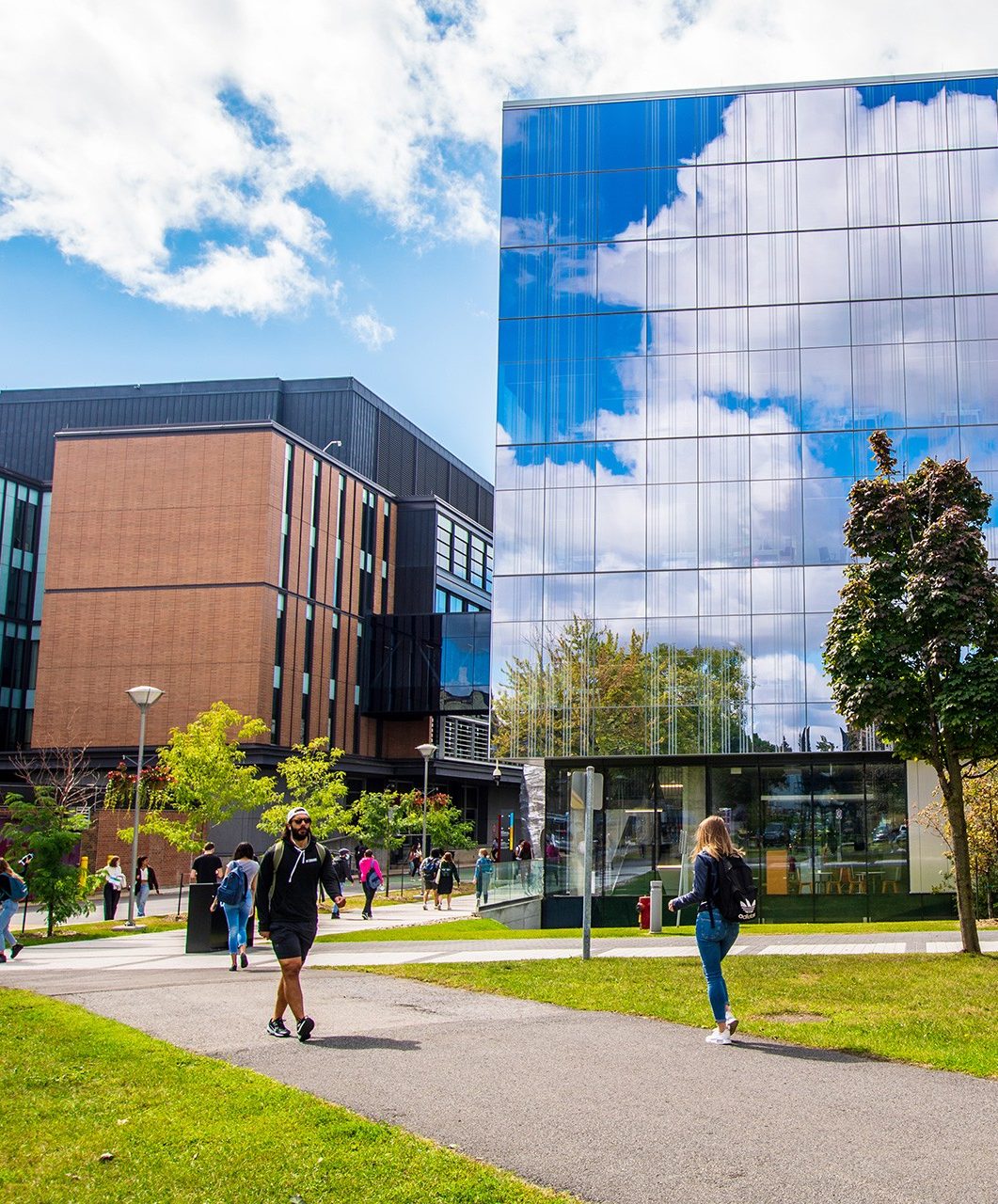
A new model for fighting climate change
PLAN/NET ZERØ calls for experimentation to work toward decarbonization across both its campuses. Concordia is finding new ways to reduce total energy consumption and transform the university into a living lab.
Researchers, students and industry leaders will have the opportunity to use the multifunctional public campus environment as a sandbox for exploration, co-creation and testing of new technologies and methods.
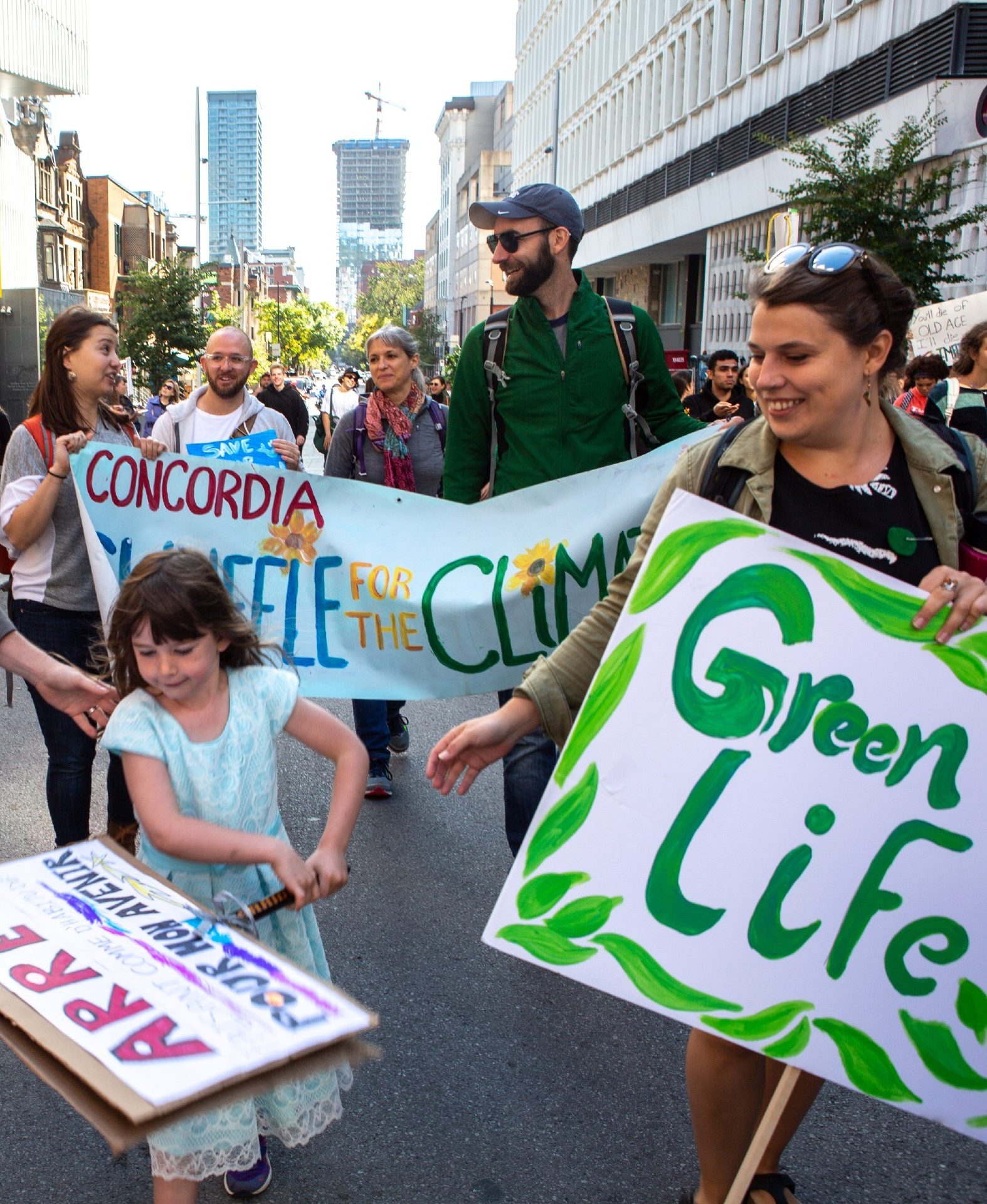
Why Concordia?
Research strengths: Electrification, Internet of Things, batteries, cybersecurity and smart grid security, smart buildings and applied AI.
Next-Gen Cities Institute: Brings together more than 200 researchers and 14 research centres focused on contemporary sustainability challenges.
A microcosm of a city: 50,000 students and 7,000 faculty and staff operate across 80 buildings on two campuses.
Green technology incubation: Platforms such as District 3 and V1 Studio will support PLAN/NET ZERØ.
PLAN/NET ZERØ news
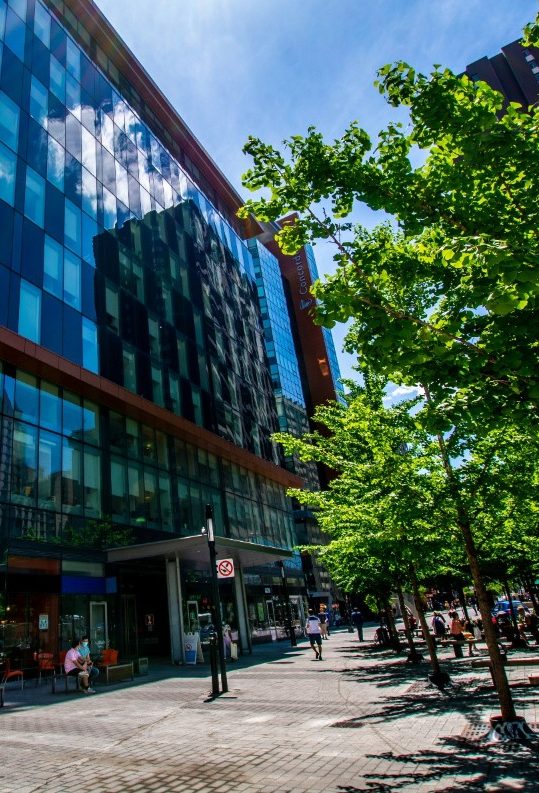
GM Building pilot project
PLAN/NET ZERØ's pilot project involves a deep energy retrofit of the Guy-De Maisonneuve (GM) Building on the Sir George Williams Campus.
In partnership with Johnson Controls, Concordia is executing an extensive, holistic overhaul of the building's systems to reduce energy consumption and eliminate greenhouse gas emissions.
The pilot project is exploring methods to measure energy efficiency and achieve net zero emissions across building operations.
Loyola Campus project
Concordia will work with Énergir and Hydro-Québec to implement sustainable energy solutions on Loyola Campus.
Together, the collaborators will explore methods to decarbonize the campus in a grid-friendly manner and minimize power demand at peak times. The project also aims to create a centre of excellence on campus — a living lab critical to educating the next generation of sustainable leaders in Quebec.
Join the conversation
Send your questions and comments to netzero@concordia.ca.




